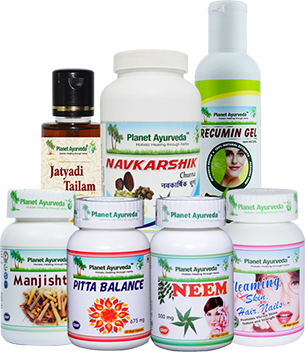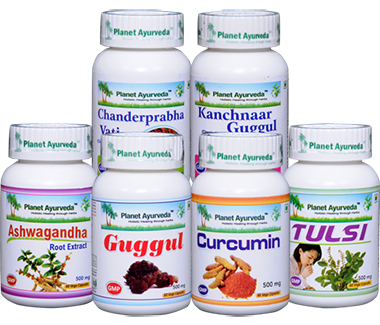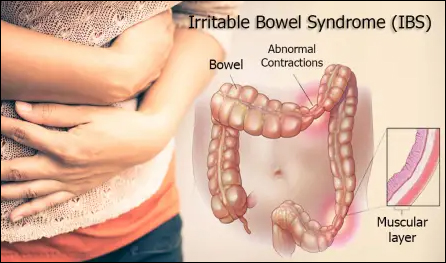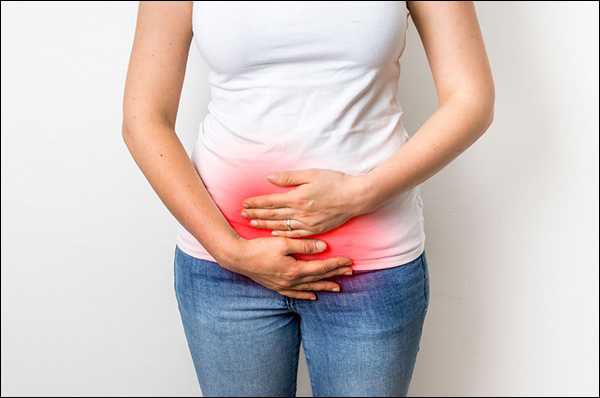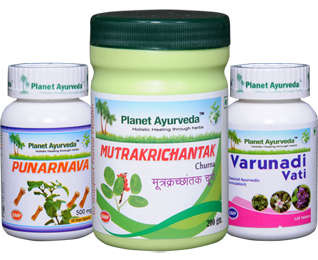Among the skin diseases, psoriasis is the most troubling and deteriorating disease that affects the skin or the integumentary system. It is a chronic inflammatory disease of the skin, characterized by well- defined erythematous plaques with large, adherent and silvery scales. This disease is also categorized under autoimmune diseases because the prime reason for psoriasis is our overactive immune system.
Overall, the course of the disease is unpredictable but is usually chronic with exacerbations and remissions. Our reduced immunity is the cause of its relapse. As this condition relapses frequently the underlying skin becomes discolored and gives an ugly look to our personality. In Ayurveda, psoriasis is called as 'Kushtha' which is a "Pitta Pradhana Tridoshaj Vyadhi".

WHAT CAUSES PSORIASIS?
- Dietary factors (Aaharaj karana) – As per Ayurveda certain foodstuffs can cause skin lesions. If a person is consuming excessive hot, spicy, sour, fermented, oily foodstuffs, junk foods, curd, etc.
- Lifestyle factors (Viharaj karana) – Indulging in activities like excessive exposure to sunlight, sedentary lifestyle, etc. may lead to the vitiation of pitta dosha in our body.
- Mental factors (Mental status) – Mental tension, and stress can exaggerate the condition.
- Hereditary factors – Skin diseases can also be inherited
- Occupational hazard – Those who work in chemical factories, under high temperatures, they are prone to develop skin problems.
- History of Skin infections – Some skin infections in later stages may lead to psoriasis.
- Allergy – History of any allergy may be a triggering factor for this disease. Allergy from particular food items, medications, dust, smoke, pollens and chemicals.
- Cosmetics – Some external applications may damage our dermis layer.
- Climatic or environmental changes – Seasonal and climatic changes can provoke the condition.
PRECIPITATING FACTORS
The factors that are responsible for flare-ups are –
- Medications – Long term use of steroids, beta- blockers can affect our immune system and reduce our immunity. As impaired immunity is one of the main factors for developing diseases in our body.
- Trauma – Any trauma to the skin can damage the epidermal layer of skin further which gives rise to infection and can cause psoriasis.
- Anxiety may precipitates some exacerbations.
- Habits like smoking and drinking alcohol.
- Unhygienic conditions.
As per Ayurveda some other factors may also be responsible for this condition, they are –
- Suppression of natural urges especially Chardi vega (vomiting)
- Consumption of food before the digestion of the previous meal.
- Virudha aahaar – Regular consumption of unwholesome food leads to the accumulation of toxins in the body.
- Skin lesion can occur as a complication of improper Panchakarma.

Reference – Charaka samhita / Chikitsa sthana / Kushtha chikitsa / Chapter no. 7 / Shloka no. 7
Meaning – Excessive consumption of newly harvested grains, curd, fish, salt, black gram, radish, fermented foods, jaggery, milk, sesame, etc are the foods can develop psoriasis.
WHAT IS THE ROLE OF OUR IMMUNE SYSTEM IN CAUSATION OF PSORIASIS?
As discussed earlier it is an autoimmune disease which means immune system is responsible for psoriasis. Increased epidermal cell proliferation which leads to psoriatic patches is related to the increased replication and metabolism of dermal fibroblasts that is initiated by overactive immune system.
Another involvement of the immune system is denoted by defective and impaired functioning of T helper cells and neutrophils where they anticipate the healthy tissues as antigens and destruct the epidermal layer and form lesions which are scaly and discolored.
Moreover, Ayurveda considers that the weak immune system is responsible for almost all the diseases.
WHAT ARE THE TYPES OF PSORIASIS?
- Plaque psoriasis – This psoriasis is the most common one. Scaly formations have been seen over the affected area, these are silvery and white in color. Individual lesions are well demarcated and range from a few millimeters to several centimeters. The most common sites are – elbows, scalp, and knees. These plaques can be peeled off.
- Guttate psoriasis – Small pink spots emerge over the skin. We can observe this type of psoriasis in youths. The rash often appears rapidly and individual lesions are droplet –shaped, small and scaly. This is a self- limiting condition. Most common sites are – trunk and limbs.
- Pustular psoriasis – Pus-filled eruptions surrounded by red skin will arise and are not infectious. The common sites are hands and feet.
- Inverse psoriasis – Patch of the skin is blood red and shiny that are usually found in the groin, breast and armpit region. This problem is due to sweating and itching.
- Erythrodermic psoriasis – Rarest type, but a very serious one, which may affect our other systems like respiratory and cardiovascular, if not treated on time.
- Nail psoriasis – This condition is more common in the patients suffering from arthritis which affects our nails of hands and feet. It occurs due to fungal infection. Patients of nail psoriasis exhibit pains, tenderness, discolored nails, pit formation in nails, etc
- Currently, one more type has been noticed i.e. ‘Psoriatic arthritis’. Actually, it is not a type, it is a complication of psoriasis.
SIGNS AND SYMPTOMS
The common signs and symptoms of Psoriasis are -
- Itching
- Rashes
- Burning sensation
- Pains
- Oozing out blood
- Lacerations
- Discoloration of skin
- Formation of pustules
- Excessive sweating
- Flakes formation
- Dryness all over the body
- Cracked skin
- Pricking pain
- Sometimes swelling may be present
- Joint problems
- Dullness of senses
- Horripilation
- With time person may lose sensation over the affected area.
CARDINAL FEATURES OF KUSHTHA AS PER AYURVEDA
The symptoms of this disease may vary due to predominance of doshas –
- In Pitta pradhan kushtha – The lesions are associated with burning sensation.
- If kapha pradhan kushtha – The lesions are associated with itching and lacerations.
- If Vata pradhan kushtha – The lesions are associated with pain and loss of sensation.
PATHOLOGY AS PER AYURVEDA
The pathogenesis of kushtha explained in our classics goes as -

Reference – Charaka samhita / Chikitsa sthana / Kushtha chikitsa / Chapter no. 7 / Shloka no. 9
Meaning – The meaning of this quotation goes as – vitiated vata –pitta – kapha dosha get localized and vitiate our twak (skin), rakta (blood), lasika (lymph), mamsa (muscles). These are the 7 prime factors that are responsible for the causation of skin lesions in our body.
DIAGNOSIS
The skin problems can be diagnosed symptomatically but to rule out the exact cause and extent of penetration of skin lesion, we can take the help of few investigations they are –
- Skin prick tests
- CBC (Complete blood count)
- ESR (Erythrocyte sedimentation rate)
- Immunological assay
- Biopsy
MANAGEMENT STRATEGY
Ayurveda is a holistic science that resolves and eradicates psoriasis. The management strategy goes as –
- Detoxifying the body internally as well as externally.
- Maintaining Agni
- Rejuvenating the damaged cells
- Enhancing immunity
- Restoring the normal color
AYURVEDIC TREATMENT
Ayurveda potentially treats all the diseases with its full-fledged wings of therapies i.e. Shaman chikitsa (Palliative care) and Shodhana chikitsa (Purification therapies).
Shaman chikitsa includes the administration of internal medicines so for managing this problem Planet Ayurveda has a perfect solution – PSORA CARE PACK. It is group of effective herbal remedies that has the potency to treat all types of psoriasis. The herbs used in these formulations are of standard quality and are natural. These are totally chemicals and steroids free medicines.
Psora Care Pack
DESCRIPTION OF PSORA CARE PACK
1. Navakarshik Churna
Navakarshik churna is a combination of amalaki (Emblica officinalis), haritaki (Terminalia chebula), bibhitiki (Terminalia bellirica), daruharidra (Berberis aristata), vacha (Acorus calamus), manjishtha (Rubia cordifolia), katuki (Picrorhiza kurroa), guduchi (Tinospora cordifolia).
Triphala is well-known for its detoxifier property. Katuki and guduchi help to purify the liver, hence help to eliminate toxins from the body. Manjishtha, daruharidra and vacha are helpful in the purification of blood. Basically, this churna helps to detoxify the whole body by removing toxins from the liver, colon and blood. It also helps to relieve constipation.
Dosage: 1 teaspoon twice daily with plain water after meals.
2. Gleaming Skin, Hair, Nails Formula
Rubia cordifolia (Manjista), Fumaria officinalis (Pit papad), Swertia chiretta (Chirayata), Aloe barbadensis (Ghrit kumari) are ingredients of this natural product that comes in capsules form. Standardized extracts are used here for better results. Gleaming Skin, Hair, Nails Formula helps to maintain healthy skin and balances pitta doshas along with vata and kapha. This also helps to support health pH of skin to keep skin healthy in all way.
Dosage: 2 capsules twice daily with plain water after meals.
3. Neem Capsules
Neem (Azadirachta indica) is a known herb for its anti-inflammatory, antimicrobial and blood purification properties. It helps to eliminate toxins from the body and even increases the body's defensive mechanism for fighting against bacteria and viruses.
Dosage: 1 capsule twice daily with plain water after meals.
4. Manjishtha Capsules
These capsules contain the extract of manjishtha. It is an effective herb in treating skin problems. It acts as a blood purifier and as an anti-oxidant herb which helps to pacify Pitta dosha in our body. It helps to regain the normal skin color and also enhances the complexion.
Dosage: 2 capsules twice daily with plain water after meals.
5. Pitta Balance
The constituents of pitta balance are - akik pisti, praval pishti, jaharmohra pishti, kamdudha ras, mukta pishti and giloy satva. All these medicines act on our immune system. They have immune modulator property, which helps to enhance our immunity and digestive problems are very common in skin lesions, thus pitta balance helps to manage the digestive fire.
Dosage: 1 capsule twice daily with plain water after meals.
6. Jatyadi Oil
This is a classical formulation which is composed of haridra, jati, nimba, patola, manjishtha, katu rohini, tutha, etc herbs and some metallic contents, they have penetrating property hence heals the deep-seated wounds or non- healing wounds. This oil is very beneficial in chronic psoriatic conditions. It also restores the normal color and reduced sensation of the affected area.
7. Recumin Gel
Recumin gel is a patent product of Planet Ayurveda which has shown tremendous results in case of skin disorders. It promotes early healing of wounds, restores the normal color and texture of the skin by removing the scaly de-pigmented patches from the body. Recumin gel contains Azadirachta indica, Jasmine officinalis, Commiphora mukul, Celastrus paniculatus, Sesame indicum, Cocus nucifera, etc. Basically, the herbs in this gel have anti-bacterial action and improve skin complexion.
Usage: For external use only, this Jatyadi oil and Recumin gel can be mixed together and apply twice daily on the affected area after cleaning the area.
In the absence of Recumin gel or Jatyadi oil you can also use Lippu oil and Psorolin ointment. Which are also equally effective in this condition.
Lippu Oil
The components of lippu oil are karanja (Pongamia glabra) and coconut oil. Karanja is an effective anti-bacterial medicine and coconut helps to manage proper skin tone and gives soothing effect to the skin. This is an effective combination to remove flakes from the skin and helps to heal skin tissues.
Usage: Apply locally on lesions after bath and expose to sunlight for about 5 min.
Psorolin Ointment
This ointment is helpful to reduce the abnormal growth of skin cells. It even creates a layer to protect your skin from infectious agents present in the surroundings. As scales are commonly formed, it helps to reduce them.
This ointment is formed by using the oil extracts of Wrightia tinctoria and cynodon dactylon.
Usage: Apply locally on lesions at night.
PANCHAKARMA
A potent branch of Ayurveda that helps to resolve the problem internally as well as externally by detoxification. Here the therapies that are helpful in this condition are –
- Patra Pinda Sweda (Leaf bundle massage) - It helps to exfoliate the dead skin and skin lesions.
- Basti (Medicated enema) – Medicated enema helps to detoxify the toxins from the blood as well as stimulates the enteric nervous system hence it stimulates the immune system.
- Virechana (Purgation therapy) – This procedure helps to eliminate vitiated pitta dosha and ama from the body hence purifies body.
- Jaloka avcharna (Leech therapy) – It helps to eliminate toxins from the blood.
DIETARY AND LIFESTYLE MANAGEMENT
- Avoid the excessive intake of oily, sour, salty, sweet and fermented foodstuffs.
- Avoid milk and milk products
- Carrot juice is very effective in relieving the symptoms of psoriasis. Hence, include it in your daily diet.
- You can take sweets made from pumpkin
- Cow ghee is a rasayana that helps in rejuvenation of the cells. Include ghee in your diet instead of Refined oil.
- Fresh juices (Consume Everyday)
Green Juice
- Coriander (dhaniya) leaves – 10-12
- Mint (pudina) leaves – 4-5
- Spinach (palak) leaves – 2
- Basil (tulsi) leaves – 2-3
- Wheatgrass (gehun ke jware) – 5-6
- Long grass juice (durva) – 6-7
- Sheesham leaves – 2-3
* 20 ml or 2 tbsp., twice daily can be taken. *
Red Juice
- Beetroot
- Carrot
- Pumpkin
- Amla
- Apple
- Pomegranate
- Marigold flower petals – 9-10
- Rose petals – 5-6
* 200 ml, two to three times can be taken.
* For taste, black grapes can be added.
In some cases, modifications in the lifestyle and occupation are required. Try to indulge in physical exercises and yoga as it will help to improve your immune system.
SOME USEFUL TIPS
- In case of itching you can wash the lesions with the neem leaves decoction or triphala decoction.
- You can apply Aloevera gel topically to relieve burning sensation.
- Drink plenty of water as it will eliminate toxins and cleanses channels.
As per modern science psoriasis is controllable but not curable". But the only system of medicine that has potential to cure this havoc is none other than the traditional medicinal system i.e. nothing but AYURVEDA".

